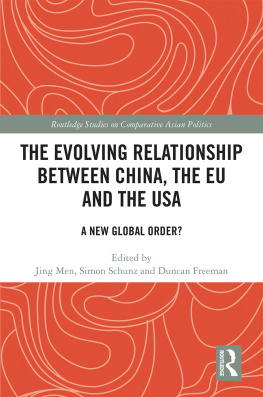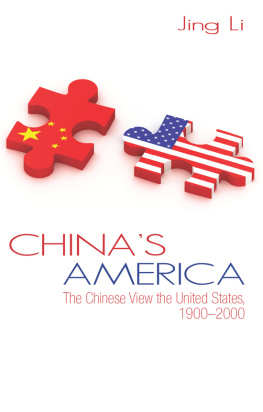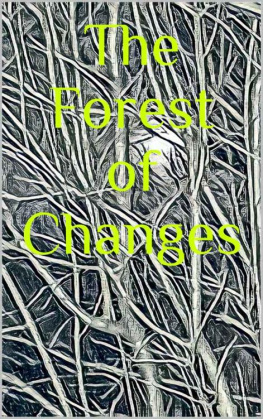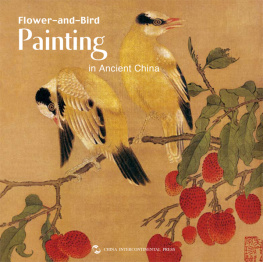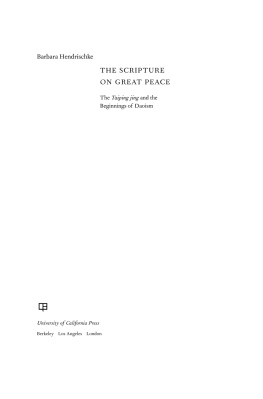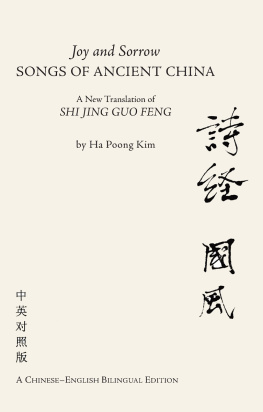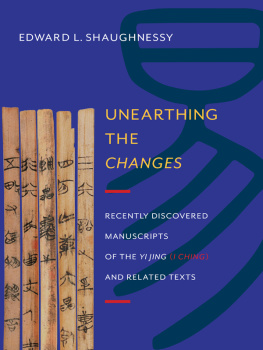
DAO DE JING

A

BOOK
The Philip E. Lilienthal imprint
honors special books
in commemoration of a man whose work
at the University of California Press from 1954 to 1979
was marked by dedication to young authors
and to high standards in the field of Asian Studies.
Friends, family, authors, and foundations have together
endowed the Lilienthal Fund, which enables the Press
to publish under this imprint selected books
in a way that reflects the taste and judgment
of a great and beloved editor.

DAO DE JING
The Book of the Way
LAOZI
Translation and Commentary by
MOSS ROBERTS

University of California Press
Berkeley and Los Angeles, California
University of California Press, Ltd.
London, England
2001 by the Regents of the University of California
Library of Congress Cataloging-in-Publication Data
Roberts, Moss, 1937
Dao de jing : the book of the way / translation and commentary by Moss Roberts.
p. cm.
ISBN 0-520-20555-3
1. Laozi. Dao de jing. I. Laozi. Dao de jing. English.
II. Title.
BL1900.L35 R628 2001
Manufactured in the United States of America
9 8 7 6 5 4 3 2 1 0
10 9 8 7 6 5 4 3 2 1
The paper used in this publication meets the minimum requirements of ANSI/NISO Z39 0.48-1992 (R 1997) (Permanence of Paper).
DEDICATION AND
ACKNOWLEDGMENTS
IT WAS THE LATE Professor C. N. Tay who suggested that I try my hand at a translation of the Dao De Jing. Professor Tay was a friend, a colleague, and a mentor, and I was enthusiastic at the prospect of working with him on this project. Suddenly, on Easter Sunday 1994, Professor Tay passed away. Work on the project had hardly begun; my hopes for a sustained collaboration vanished. I resolved to continue with the translation, in part as a mark of my respect for his memory.
Other unexpected and keenly felt personal losses soon followed. Professor Eric Holtzman died that same month, and then in January of the following year Professor Bernard Fields, a friend since high school, passed away. Another close friend, Leo Cawley, a Vietnam veteran, had died of bone cancer at the age of forty-seven in 1991.
Three variants of the Dao De Jing have been found buried in tombs: the Guodian text in a Warring States tomb dated to about 300 B.C., and in a Han tomb at Mawangdui, two texts that date to about 200 B.C. The version published by Fu Yi, a scholar of the Tang period, is also based on a Han tomb text. It is likely that more Dao De Jing manuscripts will be excavated. At whose behest was the Dao De Jing buried, and with what thought in mind? Was it intended as a comfort to the dead? A spiritual companion among the more practical and ornamental grave goods usually found? Was it seen as a work devoted to the fecund earth mother, which creates all living things and receives them again? Or was the text entombed as a consolation for the living, its meditations on mortality and time and on the passage from shadow to light to shadow (and to the light again?) serving as a bridge to the other realm?
Working on the translation became for me a way of keeping close to lost friends whose companionship I had shared over the better part of a lifetime. In 1999, another noted scholar, John S. Service, passed away. I was privileged to have had a warm relationship with him in the last decade of his life, and I benefited from his thoughtful observations on China and on America. It is to these five friends and scholars that this translation is dedicated.
In 1993, about the time I began thinking about how to approach this project, the Warring States Working Group was getting organized under the leadership of the research team of Professor E. Bruce Brooks and Taeko Brooks. These two scholars had been studying and analyzing the entire Warring States corpus for several decades. With the collaboration of Professor Alvin Cohen at the University of Massachusetts at Amherst, the Brookses summoned into being a new and exciting regional symposium on a wealth of topics relevant to the history of Warring States texts. The group provided a much-needed focus for research work and free-wheeling discussion and has now become an important national and international forum. I was fortunate to have been present at the creation of the group and to have participated in many of its meetings and other activities, and my association with it was quite helpful to my research. I would also like to express appreciation for the indirect but significant contribution of my colleagues at New York University. The senior and junior scholars in our East Asian program have created an intellectual environment that I have found stimulating. Their generous collegiality and energizing spirit of free inquiry have often lifted my own spirits; but beyond that, they have served as a trustworthy point of reference against which to correct ones angle of vision on a wide range of questions. Many a time they have made me think again.
Another person I would like to thank is Professor Fang Ping. In the fall of 1995 I spent a semester at Shanghai Teachers University teaching English. During that time I was fortunate to make the acquaintance of Professor Fang, who is the main living translator of Shakespeare into Chinese. I would like to thank him for reading over a number of my stanzas and for his valuable suggestions on interpretation and style.
My thanks go to my two editors at University of California Press. Doug Abrams encouraged me to pursue this project and spent countless hours trying to put my drafts into presentable shape and discussing with me strategies for the introduction and the translation. His faith in the outcome has been in constant conflict with my own skepticism. Reed Malcolm has skillfully guided the manuscript through its later stages. Carolyn Bonds careful copyediting caught many minor errors, and I thank her for that. But more importantly, she acted as a conscientious and constructive colleague: her persistent and pointed queries often prompted me to rethink and rewrite parts of the translation and the critical apparatus.
My final word of appreciation is to my family: my wife, Florence, whose untiring service as an attorney for the poorer citizens of New York City sustains my faith in human decency, and our children, Sean and Jenny, who have followed her example and in so doing set an example of their own.
CONTENTS
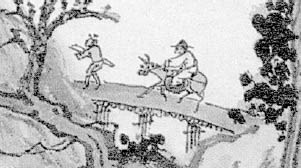
INTRODUCTION
Moss Roberts
THE POEMS AND SAYINGS of the mysterious book of wisdom called Dao De Jing have powerfully affected many aspects of Chinese philosophy, culture, and society. In the realm of aesthetics the idea of
Next page

